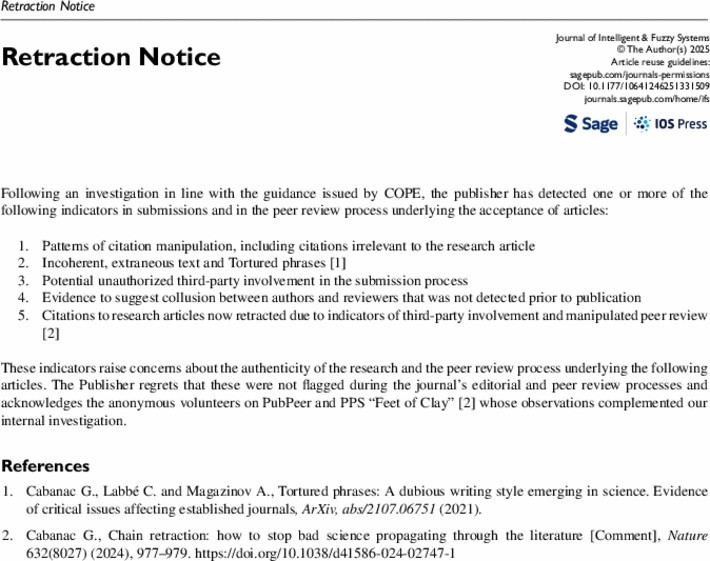The paper, titled "Applying deep learning to wireless sensor networks to monitor high school students' emotions", was published online on August 3, 2023, and later retracted as part of an ongoing investigation by the publisher, launched in early 2024.
The lead author was Assoc. Prof. Dr. Le Quang Thao, a faculty member at the Faculty of Physics, University of Science, Vietnam National University, Hanoi. Also listed were Nguyen Thi Bich Diep, director of a Hanoi-based study abroad consultancy (as the corresponding author), and three high school students from Reigate Grammar School, Nguyen Sieu Secondary and High School, and Hanoi-Amsterdam High School for the Gifted.
According to the retraction notice, the journal identified one or more of the following issues: citation manipulation, including irrelevant references; incoherent or distorted content; possible third-party involvement during submission; evidence of collusion between the authors and reviewers undetected before publication; and citations of previously retracted articles linked to third-party manipulation of the peer-review process.

What does the university say?
Speaking to VietNamNet, Assoc. Prof. Tran Quoc Binh, Vice Rector of the University of Science, said the university learned of the retraction last week. Following this, the university asked Assoc. Prof. Thao to clarify the matter.
"Dr. Thao reported that he has requested a detailed explanation from the journal regarding the retraction to gain clarity on the issue. The journal has not yet responded. Their explanation is crucial as they made both the acceptance and retraction decisions," Binh said.
He acknowledged that the inclusion of high school students as co-authors in scientific research is uncommon and can raise questions. However, the university’s main concern is the scientific contribution of these students to the research.
Similarly, the university has asked Dr. Thao to clarify the academic contributions made by Nguyen Thi Bich Diep to the paper. “Where she works is not the key issue - what matters is the nature of her contributions,” Binh added.
“Dr. Thao is currently reviewing the research process, which took place over two years ago, to provide a clearer account of what occurred,” he said.
Regarding academic integrity, the Vice Rector noted that the university has recently issued guidelines on research ethics to ensure quality, reduce risk, and avoid misunderstandings or disputes among parties involved in scientific activities.
For the case involving Assoc. Prof. Le Quang Thao, Binh confirmed that the university will thoroughly investigate and base its conclusions on principles of scientific integrity.
Thuy Nga